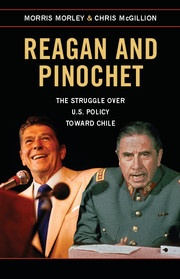Introduction
Published online by Cambridge University Press: 05 February 2015
Summary
During the first three decades of the twentieth century, the United States transformed itself from a dominant regional into a competitive global power, all the while projecting its power abroad driven less by a desire “to make the world safe for democracy” than to put down nationalist threats to an expanding U.S. capital and commerce. Throughout the Cold War era, the gap between idealistic rhetoric and policy practice showed no signs of closing: the verbal commitment to promoting democracy by American presidents “with few exceptions…was distinctly secondary to the U.S. quest for private economic opportunity and public support for military-dominated regimes that would maintain order.”
Between 1898 and 1933, the principal objective of U.S. policy in the Western Hemisphere – based on repeated military interventions and economic pressures – was to create a gaggle of client regimes in Central America and the Caribbean, which culminated in Franklin Roosevelt’s announcement of a Good Neighbor Policy. From then on, through the end of the 1950s, Washington’s policy toward Latin America gave priority to establishing a “closed economy in an open world.” Politically, this translated into supporting “dependable and weak” anticommunist regimes, irrespective of their origins or how they ruled. In pursuit of this overarching objective, successive administrations approved of, and accommodated, both “stability” achieved within a democratic context and “stability” imposed by brutal, autocratic governments. During the 1960s and early 1970s, maximum flexibility became the justification for diplomatic recognition of armed forces’ illegal seizures of power. Starting with the Kennedy administration’s approval of the January 1961 military coup in El Salvador, U.S. support for democracy in Latin America, in other words, remained selective and contingent rather than universal and principled.
- Type
- Chapter
- Information
- Reagan and PinochetThe Struggle over US Policy toward Chile, pp. 1 - 25Publisher: Cambridge University PressPrint publication year: 2015



